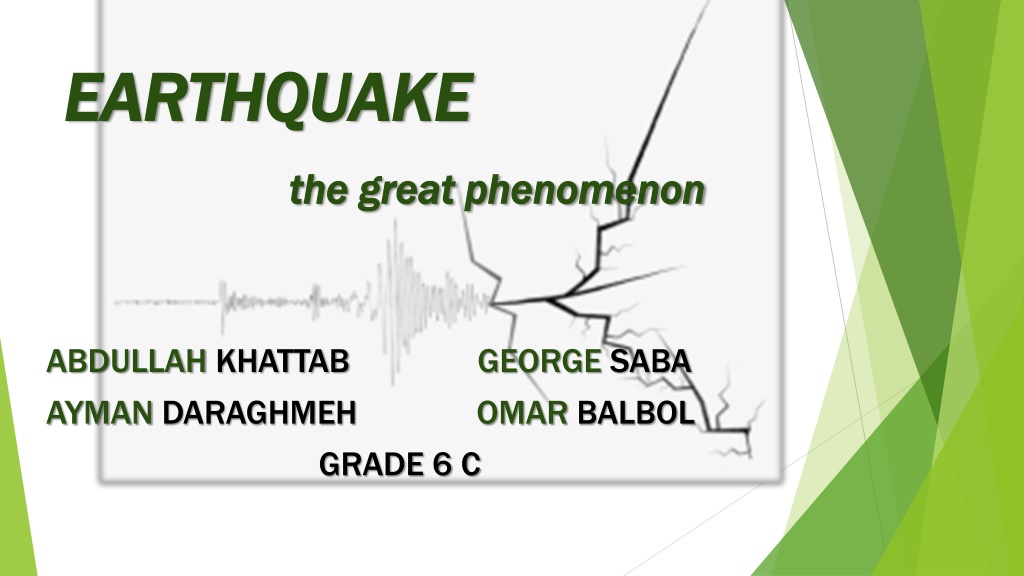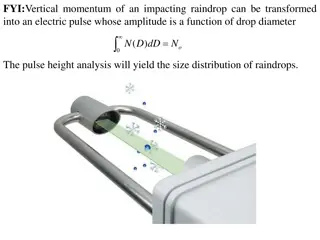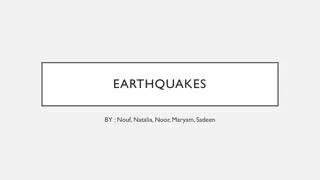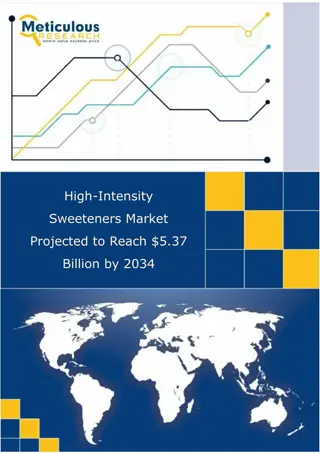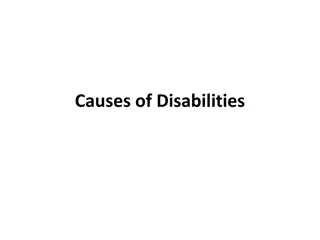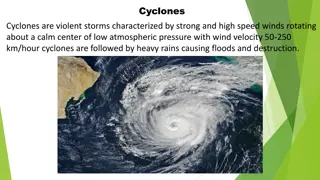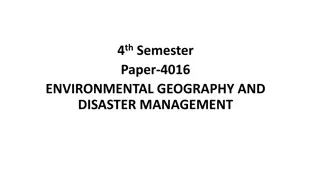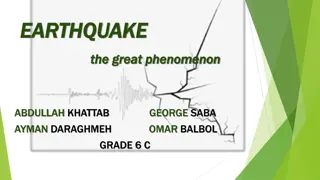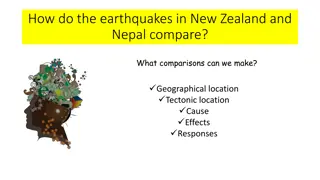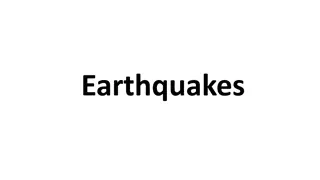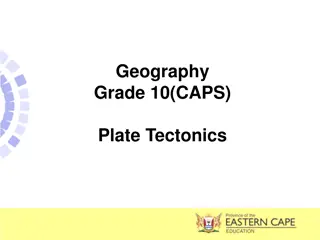Understanding Earthquakes: Causes, Effects, and Intensity Factors
Earthquakes are sudden shaking movements of the Earth's surface caused by various factors like volcanic eruptions, tectonic plate movements, mining, and construction. They result in ground shaking, ruptures, tsunamis, and landslides, with intensity affected by distance, depth, population density, geology, building construction, and shaking duration.
Download Presentation

Please find below an Image/Link to download the presentation.
The content on the website is provided AS IS for your information and personal use only. It may not be sold, licensed, or shared on other websites without obtaining consent from the author. Download presentation by click this link. If you encounter any issues during the download, it is possible that the publisher has removed the file from their server.
E N D
Presentation Transcript
EARTHQUAKE EARTHQUAKE the great phenomenon the great phenomenon ABDULLAH KHATTAB GEORGE SABA AYMAN DARAGHMEH OMAR BALBOL GRADE 6 C
What Is An Earthquake? What Is An Earthquake? An earthquake is a sudden shaking movement of the surface of the earth. It occurs when there is a sudden release of pressure in the Earth s crust at plate margins. The energy waves created by the release of pressure cause vibrations and movement in the Earth s surface.
Causes Of Earthquakes Causes Of Earthquakes Causes: Causes: Volcanic eruptions: when magma and ash escape from the volcano. Tectonic plate movements: the Earth s crust is made up of several large plates that are constantly moving. When two plates collide it causes an earthquake. Earthquakes can also happen when a plate slides under another plate. This called the subduction zone. Mining: when miners remove large amounts of coal, oil, or gas from the ground it cause the ground to collapse and cause an earthquake. Construction: when large buildings are built, they can change the way the ground moves and create an earthquake. Volcanic eruptions Tectonic plate movements Mining Construction
Effects Of Earthquakes Effects Of Earthquakes Ground Shaking: Ground Shaking: is the most familiar effect of earthquakes. It is a result of the passage of seismic waves through the ground, and ranges from quite gentle in small earthquakes to incredibly violent in large earthquakes. Ground Rupture: Ground Rupture: which occurs when the earthquake movement along a fault actually breaks the Earth's surface. While active ground rupture is comparatively rare, there have been cases of it in California -- for example, during the 1906 earthquake, fences were offset by as much as 7 meters.
Tsunamis: Tsunamis: are a series of water waves caused when the seafloor moves vertically in an earthquake and which can travel vast distances in a short period of time. Landslides: Landslides: are caused by earthquakes both by direct rupture and by sustained shaking of unstable slopes. They can easily destroy buildings in their path, or block roads.
The Factors That Effect the intensity and The Factors That Effect the intensity and frequency of earthquakes. frequency of earthquakes. Intensity is used to describe the damage by an earthquake. It measures the effect on people, structures and the natural environment. Some factors that affect intensity are the distance away from the epicenter, the depth of the earthquake, the population density of the area affected by the earthquake, the local geology of the area, the type of building construction in the area, and the duration of the shaking.
How To Detect And Measure Earthquakes? How To Detect And Measure Earthquakes? Seismometers allow us to detect and measure earthquakes by converting vibrations due to seismic waves into electrical signals, which we can then display as seismologists on the computer screen. Seismologists study earthquakes and can use this data to determine where and how big a particular earthquake is.
What Is The Impact Of Earthquakes On The What Is The Impact Of Earthquakes On The Natural Environment And Ecosystem? Natural Environment And Ecosystem? Negative effects: The primary effects of earthquakes are ground shaking, land sliders, and tsunamis. Fire are the secondary effect of earthquakes. Earthquakes damage buildings Positive effects of earthquakes: Earthquakes form natural spring. Earthquakes create volleys and hills. Earthquakes form natural energy sources. Earthquakes form mineral recourses.
Conclusion Conclusion Earthquakes can have a range of consequences, from the loss of human life to environmental destruction. They can also have economic effects such as inflation and decreased productivity. therefore., it is important to be prepared for an earthquake before it happens while there is no way to prevent an earthquake from happening, there are ways to migrate the effects. In Conclusion, Earthquake is a great and terrifying phenomenon of earth. In Conclusion, Earthquake is a great and terrifying phenomenon of earth. It shows the frailty of humans against nature. It shows the frailty of humans against nature. It is a tremendous occurrence that certainly shocks everyone . Above all It is a tremendous occurrence that certainly shocks everyone . Above all Earthquake lasts only for a few seconds but can cause unimaginable Earthquake lasts only for a few seconds but can cause unimaginable damage. damage.
References References Bahlerao, Camille, What affects Earthquake shaking? ,15 Jan 2019, jumpstart Blog. https://blog.jumpstartinsurance.com/earthquake-shaking-factors How are Earthquakes detected , located and measured? , 2May 2023, British Geological survey. https://www.bgs.ac.uk/discovering-geology/earth-hazards Earthquakes , 1May 2023, World Health Organization. https://www.who.int/health-topics/earthquakes Effects of earthquakes: positive , negative , examples , 17 July 2020,yonature. https://www.yonature.com/effects-earthquakes-positive-negative-impacts-with-examples Earthquake: causes and effects , 1 May 2023, unacademey www.unacademey.com Major factors that determine intensity in earthquakes , 1 May 2023, storm and weather. www.stormandweather.weebly.com what is an earthquake , 20 April 2023, nasa science space place www.spaceplace.nasa.org
